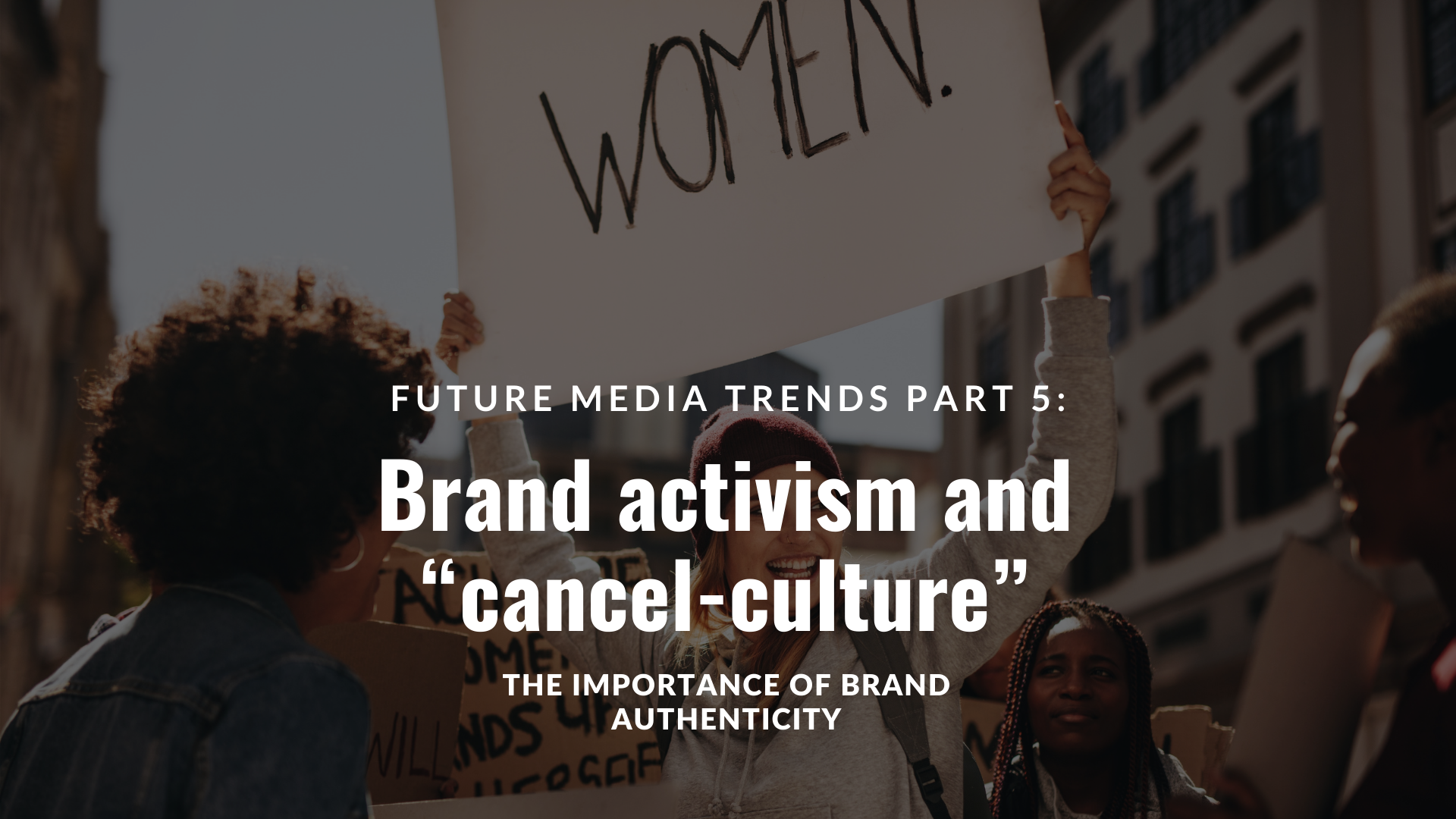Brand activism is defined as a brand that clearly and radically takes a stand and engages in activities that create a change and a positive difference in society. While brands that do this well can flourish, there is also a risk involved as brands that don’t live up to their statements risk getting “cancelled”.
Cancel-culture is mainly driven by social media and encourages customers to boycott a person or a company. Factors that drive “cancelling” are mainly actions or comments deemed unethical such as racism, child labor, false environmental claims or mistreatment of staff.
We have seen a clear increase in brand activism in the recent year as people rely more and more on companies to carry our society forwards and solve societal and environmental issues. Nike, for example, took a stand against racism, Burger King stood up against bullying and Gilette opposed toxic masculinity. These kind of actions have proven to be very good for sales and financial results when done right. But there are also many examples of the consequences for brands that didn’t walk the talk.
For example, a few years ago an American company made a large campaign about how women should be given more space in the financial sector. Upon further study it turned out that the company itself had voted against multiple equality initiatives within the company. This campaign, not very surprisingly, backfired and led to a worse financial result for the company. To be seen as authentic in their activism, brands need to carry their values throughout the whole organisation and its value chain.
Although less focus has been put on brand activism during the pandemic, our insights still point towards the increasing importance of being an ethical company through and through. This is not only important from a sales perspective, but it is also important from an employer branding perspective as younger generations care more about social and environmental issues.
Our key takeaways for companies considering brand activism is:
1. Before engaging in brand activism it is essential to deeply evaluate the company’s own culture, value chain, environmental footprint etc. depending on the claim.
2. Pick a cause that genuinely means something to the company
3. Follow through wholeheartedly – be genuine and transparent
A final touch on cancel-culture. It is a controversial topic as some claims cancel culture hinders freedom of speech and causes polarization as we simply “cancel” people with different opinions. However, there is no doubt that brands are expected to behave ethically these days and that actions have consequences. Be nice, be kind, listen to the market.


